covid-19's affect on the fashion industry
- Haute Binger

- Apr 22, 2020
- 5 min read
by Anoosha Barua
Recently, the world has changed in a way one never could have expected. If you asked me about social distancing and quarantining in February, I would’ve thought you were joking. Not only is the coronavirus dangerous, but it has affected the economy detrimentally as well. Many people have lost their jobs; the unemployment rate in America is the highest it’s been in years. Social distancing has hurt a lot of industries where connection and interaction are key. Think about airlines, restaurants, movie theaters, cruise lines, bars, nightclubs, etc.
In addition to all these industries, COVID-19 has been extremely harmful to the fashion industry. Many freelance photographers, models, hair and makeup artists, and those involved with the production of fashion shows and photoshoots, live a paycheck to paycheck lifestyle and this inability to work has been adverse. Factory and mill workers have been furloughed in masses. Fashion and design seniors won’t get to display their hard work in their graduation shows, or even a graduation. The coronavirus has affected the fashion industry in unfathomable ways, and many of these effects will be long-term.

Event Cancellations:
Fashion shows and events scheduled to take place in, or near, China, such as the Kingpins Hong Kong and Shanghai Fashion Week, were the first to announce cancellations. As the virus spread through Asia and a significant amount of cases began appearing in Italy, Giorgio Armani canceled their Milan Fashion Week show, and many other designers left early, decided to stream their shows, or had only a limited number of people in the audience. The Moncler Genius event, which was supposed to be open for the public all day, was canceled as well. Milan Fashion Week highlighted the extent of this crisis in the fashion world. After this, many other designers have preemptively canceled shows around the world.
Prada canceled its May 21 cruise presentation in Japan
Gucci canceled their May 18th San Francisco cruise show
Versace canceled their May 16th cruise event
Max Mara canceled their May 25th cruise show in St. Petersburg
Chanel canceled their 2020/2021 cruise show in Capri
Hermés canceled their April resort show in London and decide not to present their spring 2021 cruise collection on April 28th, in London.
Affected Sales:
Many global brands have store operations and factories in China that have had to close due to the coronavirus outbreak, which has made a heavy impact on sales. Leaders in the fashion industry have said not reopening factories to produce their fall/winter collections could mean missing roughly a year’s worth of turnover. So far, Ralph Lauren has reported a decrease in sales by roughly 55-70 million dollars, Capri Holdings (owner of Versace, Michael Kors, and Jimmy Choo) reported a revenue loss of 100 million dollars, but there’s much more. Not only have the luxury designers suffered severe losses, but department stores over the world, such as Neiman Marcus, Nordstrom, Macy’s, Saks Fifth Avenue, and Selfridges, have had to close their doors. The increased reliance on online retail for these companies could have been manageable, were it not for the abrupt change. To keep their doors from permanently closing and to try and keep as many of their employees as possible, many companies, such as Estée Lauder, Versace, Jimmy Choo, Ann Taylor, Loft, and Topshop, have reduced salaries by at least 50% for their executives. However, for many companies, this has not been enough and they have had to furlough an immense amount of employees and/or file for bankruptcy.

Change:
COVID-19 has propelled the fashion industry into a new age. Not only has Fashion never been more reliant on and connected to technology, with a huge increase in online retail, but the effects of coronavirus --like social distancing and quarantining-- will ignite changes to this decade’s style as well. Kimberly Chrisman-Campbell, fashion historian and author of "Worn On This Day: The Clothes That Made History" said she predicts similar trends to what happened during WWI, “which is beards are going out of style.” How can a pandemic affect beauty trends?
“In fact, very early on in this pandemic, the CDC issued guidelines for things like beards and fingernails because those can be vectors of the virus, but they can also interfere with your protective gear. For example, it's hard to wear latex gloves over long fingernails. It's hard to put a face mask or a breathing device over a beard.”
Beauty standards aren’t the only thing changing as a result of this pandemic. A natural side effect of this pandemic has been the decline in purchasing formal attire, because, well, we aren’t going anywhere. Athleisure will most likely get a natural boost because people will continue to wear loungewear once the lockdown is over, and will feel more comfortable wearing loungewear in public than they did before. The past few years have already demonstrated an uptake in athleisure, and “dressing up” comfy clothes with high-end pieces. High-end designers have begun coming out with more and more athleisure; the rise of designer sweatpants and sneakers for “street style” will only be amplified by this pandemic. Monochrome sweatsuits with gold jewelry, blazers, or trench coats, to stay comfy and stylish. Maybe a year ago this would have seemed unlikely, but now it’s not hard to imagine; designer masks are on the rise.
“Even more than bottles of hand sanitizer and disinfectant wipes, the mask has become the virus’s avatar; shorthand for our looming dread, desire to hide, inability to protect ourselves, and desire to do something — anything — to appear to take action” (NYTimes)
In the fall and winter 2019 runway shows, many models sported masks on the catwalk, and it now seems the “trickle-down effect” is taking place before our eyes as more and more people purchase these designer masks to stay safe --and stylish-- amid this crisis.
Activism:
“The fashion industry is often stigmatized for its self-regarding lack of social responsibility, yet exactly the opposite is happening now” (Vogue).
The fashion industry has really stepped up to help in this time of need. Below are some of the companies that have donated to help fight coronavirus.
Giorgio Armani donated 1.25 million euros to hospitals and institutions in Italy.
Versace has donated 144 thousand dollars to the Chinese Red Cross Foundation, and Donatella Versace and her daughter Allegra Versace Beck donated 200K euros to the ICU at San Raffaele hospital.
Miuccia Prada and her husband have donated 6 intensive care units to hospitals in Milan.
In Prague, students from the Umprum Academy of Art, Architecture, and Design, Instagrammed themselves sewing masks while self-isolating.
Stacey Bendet of Alice + Olivia wrote to New York’s governor, Andrew Cuomo saying “I have factories that can make masks and gowns. We need help identifying what is most urgent and we can mobilize the fashion manufacturers.”
Remo Ruffini of Moncler donated another 10 million euros to assist the emergency construction of a hospital in the Fiera Milano area.
Conglomerates LVMH, L'Oréal, and Coty have repurposed their factories to produce hand sanitizer for medical use.
Gucci is awaiting the go-ahead from medical authorities to make hospital masks and overalls in their Italian factories.
Kering (which owns Saint Laurent, Balenciaga, Gucci, Bottega Veneta, and Alexander McQueen) has donated 2 million dollars to coronavirus medical research.
Inditex and H&M have offered the EU mass manufacturing of gloves, masks, gowns, caps, and goggles.
David Yurman has donated 1 million dollars to 15 different COVID-19 relief causes in New York City.
Want to learn more? Check out these articles!
https://www.vogue.com/article/fashion-community-response-coronavirus
https://www.npr.org/2020/04/19/838195084/how-the-coronavirus-could-shape-fashion-choices
https://wwd.com/business-news/business-features/coronavirus-milan-fashion-week-1203506613/
https://www.harpersbazaar.com/uk/fashion/shows-trends/g31222160/fashion-shows-cancelled-coronavirus/

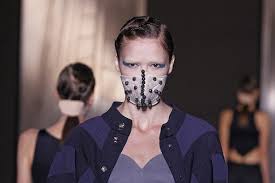

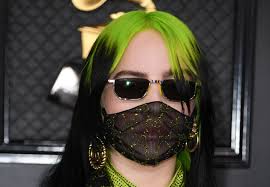

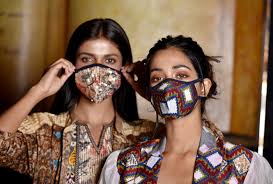





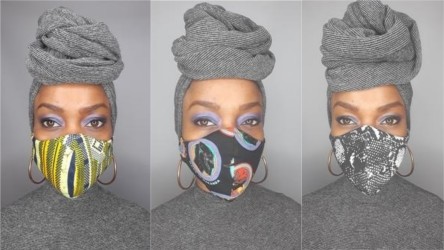

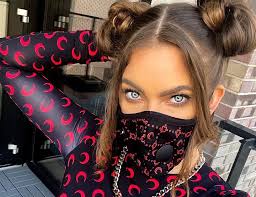



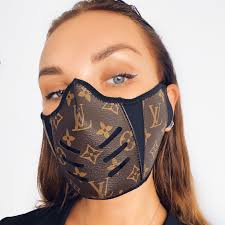






Comments